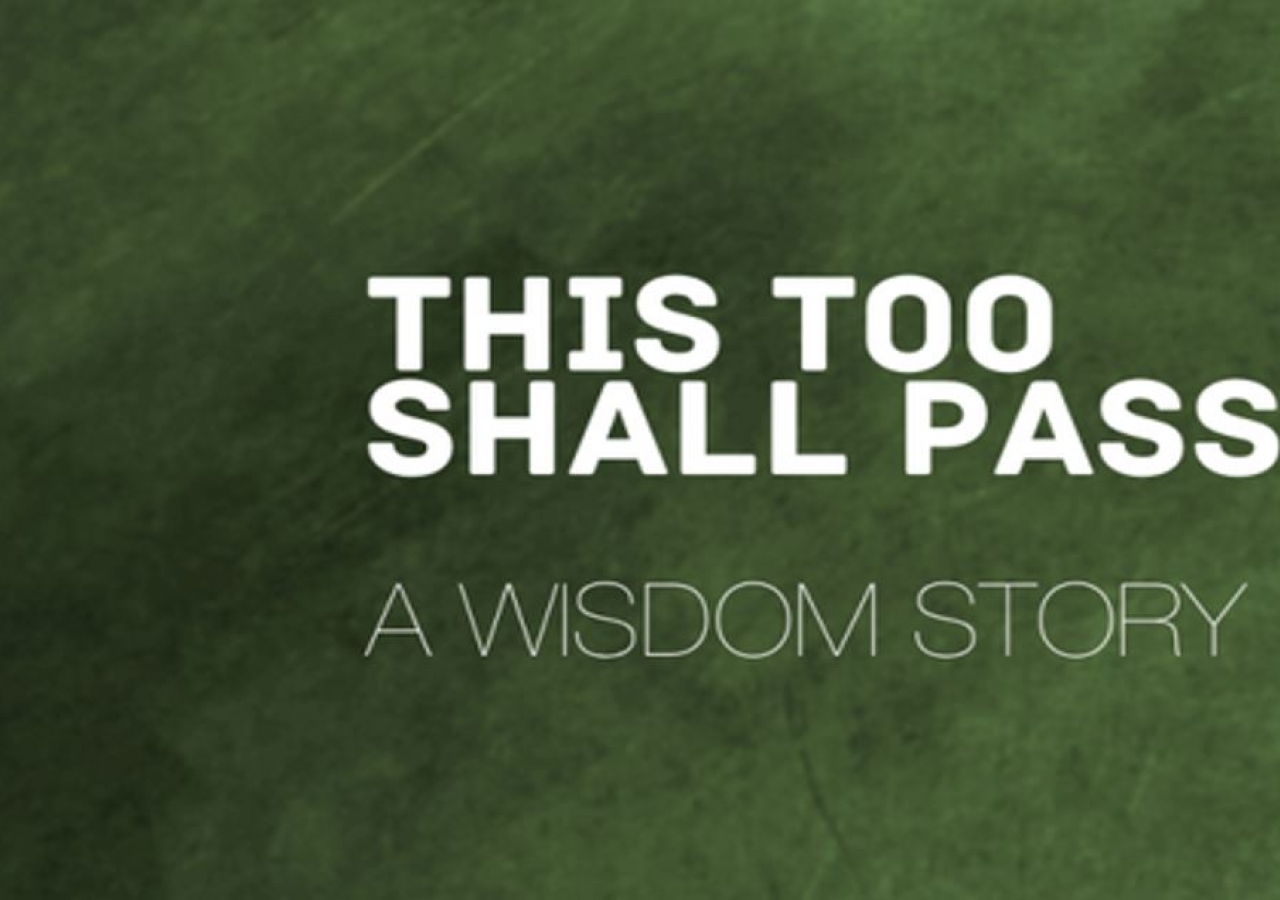Once upon a time there was a king who ruled in a country not far away. One day, he gathered the wise men of his court and said to them:
- “I have ordered one of the best goldsmiths in the area to make a beautiful diamond ring for me. I want to keep inside the ring some words that can help me in difficult times. A message to which I can turn to, in times of complete despair. I would like that message to help my heirs and the children of my heirs in the future. It has to be small, so that it will fit under the diamond in my ring.”
All those who listened to the king's wishes were great sages, scholars who could have written great treatises ... but to think of a message that would have two or three words and fit under the diamond of a ring? That was very difficult. So they pondered and delved into their philosophy books for many hours, without finding anything that would suit the mighty king's wishes.
The king had a very dear servant close to him. This man, who had also been his father's servant and had taken care of him when his mother had died, was treated as a member of the family and enjoyed the respect of all. For these reasons, the king also consulted him. And he replied:
- “I am not a sage, nor a learned man, nor a scholar, but I know the message.”
- “How do you know it” asked the king?
- “During my long life in the palace, I have met people of all kinds; and on one occasion I met a master dervish. He was a guest of your father's and I was in his service. When he left us, I accompanied him to the door to see him off, and as a gesture of gratitude he gave me this message.”
At that moment, the old man wrote the message on a tiny piece of paper. He folded it and handed it to the king.
- “Don't read it” he said. “Keep it in the ring. Open it only when you find no way out to a situation.”
That moment was not long in coming; the country was invaded and his kingdom was threatened.
He was fleeing for his life on horseback while his enemies pursued him. He was alone and the pursuers were numerous. Suddenly, he came to a place where the road ended and in front of him was a precipice and a deep valley.
To fall off it would be fatal. He could not turn back, for the enemy closed the way. He could hear the trot of the horses, the voices, the approach of the enemy.
It was then that he remembered about the ring. He took out the paper, opened it and there he found a small message that was tremendously valuable for the moment ... It simply said “This too shall pass.”
At that moment, he was aware there was a great silence. The enemies pursuing him must have got lost in the forest or perhaps they had taken a wrong turn. What was certain was that he was surrounded by an immense silence. The sound of horses could no longer be heard.
The king was deeply grateful to the servant and to the unknown master. Those words had proved miraculous. He folded the paper, put it back into the ring, reassembled his army again and re-conquered his kingdom.
On the day of the victory, there was a great celebration in the city, with music and dancing ... and the king was very proud. At that moment, the old servant, who was sitting next to him, said:
- “Dear king, the time has come for you to read the message of the ring again.”
- “What do you mean?” asked the king. “Now I am living moments of euphoria and joy, the people are celebrating my return, we have defeated the enemy.”
- “Listen” said the old man. “This message is not only for desperate situations; it is also for joyful situations. It is not only for when you feel defeated, but also when you are victorious. It is not only for when you are the last, but also when you are the first.”
The king opened the ring and read the message ... “THIS TOO SHALL PASS”
And again, he felt the same peace, the same silence, in the midst of the celebrating and dancing crowd. But the pride, the ego had disappeared.
The king could finish understanding the message. The negative was as transitory as the positive.
Then the old man said to him:
- “Remember that everything passes. No event, no emotion is permanent. Like the day and the night; there are moments of joy and moments of sadness. Accept them as part of the duality of nature, for they are the very nature of things.”
Author unknown
Published in psicologia-estratégica.com








